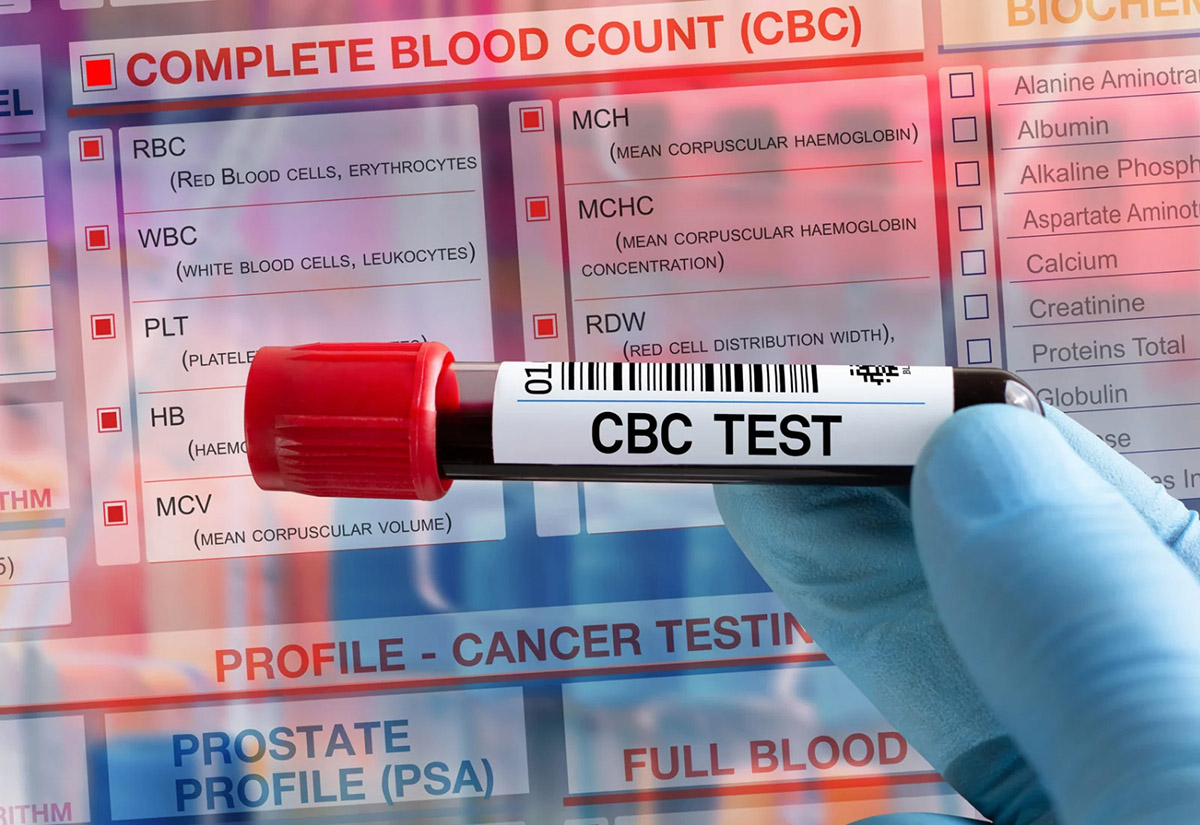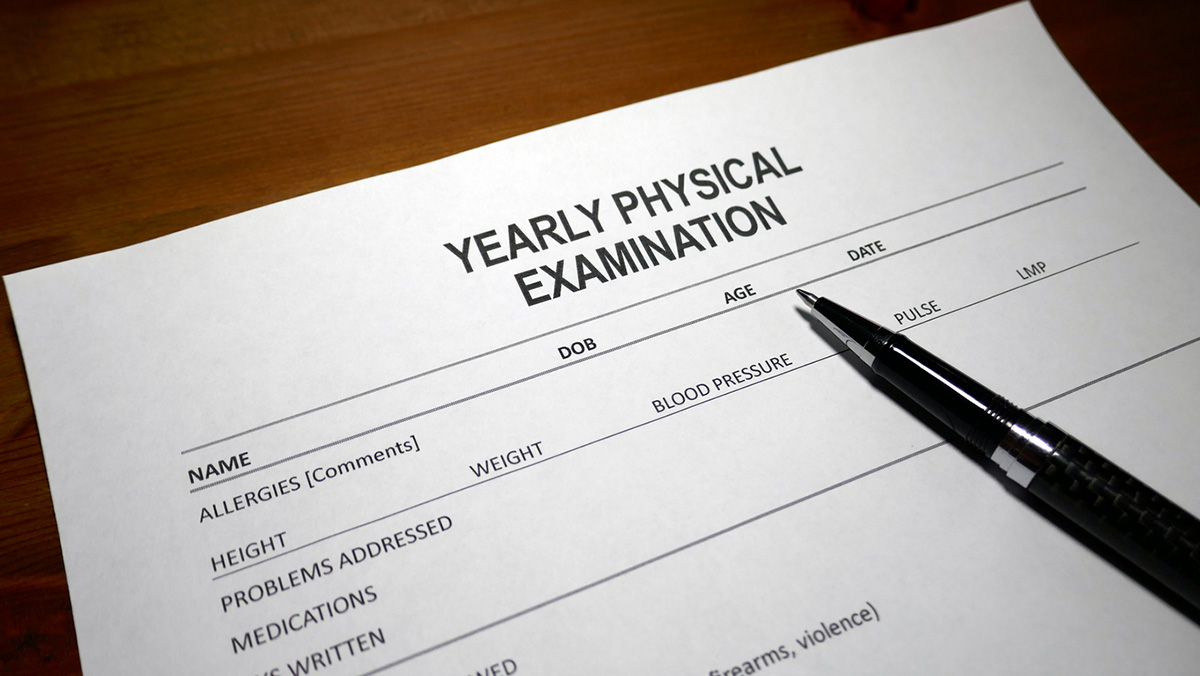

Finance
How Much Is ADHD Testing Without Insurance
Published: November 12, 2023
Discover the cost of ADHD testing without insurance and find out how it can impact your finances. Get insights on affordable options and financial assistance for ADHD assessments.
(Many of the links in this article redirect to a specific reviewed product. Your purchase of these products through affiliate links helps to generate commission for LiveWell, at no extra cost. Learn more)
Table of Contents
Introduction
Welcome to our comprehensive guide on the cost of ADHD testing without insurance. Attention-Deficit/Hyperactivity Disorder (ADHD) is a neurodevelopmental disorder that affects individuals of all ages. It is characterized by difficulties in sustaining attention, impulsivity, and hyperactivity.
ADHD can have a significant impact on a person’s academic performance, work productivity, and overall quality of life. Recognizing the symptoms and obtaining an accurate diagnosis is crucial for effective management and treatment. However, the cost of ADHD testing can often be a barrier, especially for those without insurance coverage.
In this article, we will delve into the various aspects of ADHD testing without insurance. We will explore the importance of ADHD testing, the availability of testing services, factors that influence the cost, and potential financing options. Additionally, we’ll provide information on free or low-cost resources for individuals seeking ADHD testing.
Whether you or your loved one is experiencing ADHD symptoms, understanding the process and costs associated with testing can help you make informed decisions and seek the necessary support. Let’s begin by gaining a deeper understanding of ADHD and why testing is essential.
Understanding ADHD
Attention-Deficit/Hyperactivity Disorder (ADHD) is a neurodevelopmental disorder that affects both children and adults. It is characterized by persistent patterns of inattention, impulsivity, and hyperactivity that can significantly impact daily functioning. ADHD is a complex disorder, and its exact cause is still not fully understood. However, research suggests that a combination of genetic, environmental, and neurological factors contribute to its development.
There are three main subtypes of ADHD: predominantly inattentive, predominantly hyperactive/impulsive, and combined. The predominantly inattentive subtype is characterized by difficulties in sustaining attention, staying organized, and following instructions. The predominantly hyperactive/impulsive subtype is characterized by restless and impulsive behaviors, such as interrupting others and difficulty waiting for turn. The combined subtype exhibits symptoms from both categories.
ADHD can manifest across different settings, including school, work, and social environments. Individuals with ADHD may struggle with focusing on tasks, completing assignments, managing time, and regulating emotions. These difficulties can affect academic performance, job performance, and interpersonal relationships.
It is important to note that ADHD is not merely a result of laziness or lack of discipline. It is a legitimate neurodevelopmental disorder that requires proper diagnosis and treatment. ADHD can coexist with other conditions, such as anxiety, depression, learning disabilities, and executive functioning deficits, further complicating the diagnostic process.
Diagnosing ADHD involves a comprehensive evaluation that includes a thorough medical history, observation of symptoms, and assessment of impairment. While there is no single test that can definitively diagnose ADHD, a combination of clinical interviews, rating scales, behavioral assessments, and psychological testing is typically used.
Accurate diagnosis is crucial, as it allows individuals to access appropriate interventions, treatments, and support. It is important to remember that ADHD is a lifelong condition, but with effective management strategies, individuals with ADHD can successfully navigate their challenges and thrive in various aspects of life.
The Importance of ADHD Testing
ADHD testing plays a vital role in understanding and diagnosing the condition. While ADHD symptoms may be apparent, diagnosing ADHD requires a comprehensive evaluation to differentiate it from other potential causes of similar symptoms. Here are some reasons why ADHD testing is important:
- Accurate Diagnosis: ADHD testing helps confirm or rule out the presence of ADHD. It involves a thorough evaluation by trained professionals who assess the individual’s symptoms, history, and functioning to make an accurate diagnosis. This is crucial because other conditions, such as anxiety, depression, or learning disabilities, can present similar symptoms, and a proper diagnosis ensures appropriate treatment.
- Individualized Treatment: ADHD testing helps determine the most suitable treatment approach for managing symptoms. Treatment options may include medication, behavioral therapy, counseling, and educational interventions. By accurately diagnosing ADHD, healthcare providers can tailor the treatment plan to address the specific needs and challenges of the individual.
- Educational Support: For children and adolescents, an ADHD diagnosis can facilitate access to educational accommodations and support services. These may include individualized education plans (IEPs), 504 plans, and classroom interventions. Such support can help students succeed academically and minimize the impact of ADHD symptoms on their learning.
- Workplace Accommodations: Adults with ADHD may benefit from workplace accommodations that can help improve their job performance and reduce work-related difficulties. These accommodations may include flexible work hours, modified task assignments, and organizational strategies. An ADHD diagnosis is often required to initiate the process of requesting these accommodations at work.
- Understanding Self: ADHD testing provides individuals with a deeper understanding of their strengths and challenges. It can help individuals recognize that their struggles are not due to personal shortcomings but are a result of a neurodevelopmental disorder. This understanding can lead to increased self-acceptance, self-advocacy, and the development of effective coping strategies.
Overall, ADHD testing is crucial for accurate diagnosis, individualized treatment planning, accessing educational and workplace accommodations, and gaining a better understanding of oneself. It is the first step toward managing and thriving with ADHD.
Availability of ADHD Testing Services
ADHD testing services are available through various healthcare providers and institutions. Here are some options to consider when seeking ADHD testing:
- Primary Care Physicians: Many primary care physicians are equipped to conduct initial evaluations for ADHD. They can assess symptoms, provide preliminary screenings, and refer individuals to specialists for further testing if necessary.
- Psychiatrists and Psychologists: Psychiatrists and psychologists specialize in diagnosing and treating mental health conditions, including ADHD. They have expertise in conducting comprehensive evaluations, using standardized assessments, and interpreting the results to make an accurate diagnosis.
- Nurse Practitioners (NPs) and Physician Assistants (PAs): NPs and PAs who specialize in mental health and ADHD can also conduct assessments and provide initial evaluations. They may work in collaboration with psychiatrists or other healthcare professionals.
- Psychiatric Clinics and Centers: Many clinics and centers specialize in ADHD testing and treatment. These dedicated facilities often have a team of professionals experienced in diagnosing and managing ADHD. They may offer a range of testing services, including clinical interviews, rating scales, psychological assessments, and behavioral observations.
- Specialized ADHD Clinics: Some clinics and centers specifically focus on ADHD diagnosis and treatment. These specialized clinics may have professionals who are skilled in understanding the unique complexities associated with ADHD and can provide comprehensive evaluations and appropriate recommendations.
When seeking ADHD testing services, it is important to consider factors such as the experience and credentials of the professionals, the availability of resources within the healthcare facility, and the costs involved. Additionally, it is advisable to inquire about the specific assessments and tests that will be conducted during the evaluation to ensure a thorough evaluation process.
It’s worth noting that the availability of ADHD testing services may vary depending on geographical location, healthcare systems, and insurance coverage. Some areas may have a greater number of specialists and clinics specializing in ADHD, while others may have limited options. Additionally, wait times for appointments can vary, so it is important to plan accordingly and seek testing services at the earliest convenience.
Individuals can consult their healthcare provider or contact local mental health organizations for recommendations and referrals to reputable ADHD testing services in their area. Online directories and resources can also provide information on healthcare providers who specialize in ADHD evaluations.
Factors Affecting the Cost of ADHD Testing
The cost of ADHD testing can vary significantly depending on several factors. These factors can influence the overall expenses associated with the evaluation process. Here are some key factors that may affect the cost of ADHD testing:
- Healthcare Provider and Location: The choice of healthcare provider and their location can impact the cost of ADHD testing. The fees charged by different professionals can vary based on their expertise, experience, and geographic location. In metropolitan areas, the cost of testing services may be higher compared to rural areas.
- Type and Extent of Evaluation: The type and extent of evaluation required can influence the cost. Comprehensive ADHD evaluations often involve multiple components, such as clinical interviews, rating scales, psychological testing, and behavioral observations. The more detailed and extensive the evaluation, the higher the cost may be.
- Additional Assessments and Tests: In some cases, additional assessments or diagnostic tests may be recommended to rule out other conditions or to gain a more comprehensive understanding of an individual’s strengths and difficulties. These additional assessments, such as cognitive testing or neurological evaluations, may incur additional costs.
- Health Insurance Coverage: The presence or absence of health insurance coverage can impact the out-of-pocket expenses for ADHD testing. Individuals with insurance coverage may have their testing costs partially or fully covered, depending on their specific insurance plan. It is important to check with the insurance provider to understand the coverage details.
- Testing Facility and Resources: The facilities and resources available at the testing center can affect the cost. Clinics or centers that specialize in ADHD testing may have higher fees due to their expertise and access to specialized assessments and resources.
- Follow-up Appointments and Consultation: Depending on the evaluation results, follow-up appointments and consultations may be necessary. These follow-up visits may involve discussions of the diagnosis, treatment planning, and monitoring progress. Costs associated with these visits should be considered in the overall assessment of ADHD testing expenses.
It is important to discuss the fees and costs associated with ADHD testing upfront with the healthcare provider. This will help individuals plan their finances and explore potential financing options, such as payment plans or sliding-scale fees based on income. Additionally, individuals without insurance coverage can inquire about discounted rates or seek out clinics or community organizations that offer low-cost or sliding-scale fee options for ADHD testing.
Understanding the factors that can influence the cost of ADHD testing can help individuals make informed decisions and explore resources to manage the financial aspects of the evaluation process.
Average Cost of ADHD Testing without Insurance
The cost of ADHD testing without insurance can vary depending on the factors mentioned earlier. It is essential to note that ADHD testing costs are not standardized and can differ significantly based on the healthcare provider, location, and the extent of the evaluation. Here is a general idea of the average cost ranges for ADHD testing without insurance:
Initial Evaluation: The cost of an initial evaluation for ADHD without insurance can range from approximately $300 to $500. This includes the clinical interview, review of medical history, and assessment of symptoms and functional impairment.
Psychological Testing: If psychological testing is required, the average cost can range from around $500 to $2000. This may include specific tests to assess cognitive abilities, attention span, executive functioning, and emotional well-being.
Additional Assessments: If additional assessments, such as cognitive testing or neurological evaluations, are recommended, the cost can vary. These tests can range from $300 to $1000 or more, depending on the complexity and duration of the assessments.
Follow-up Appointments and Consultations: The cost of follow-up appointments and consultations can vary based on the healthcare provider’s fees and the frequency of these visits. Typically, follow-up visits may range from $100 to $300 per session.
It is crucial to note that these figures are approximate averages and can vary widely. The costs can be higher or lower based on the factors mentioned earlier, including the region, the experience of the professional, and the specific tests conducted during the evaluation.
While the costs of ADHD testing without insurance can be significant, it’s important to consider various financing options and resources that may be available. Many healthcare providers offer payment plans or reduced fees for individuals without insurance. Additionally, community health clinics, university psychology departments, and non-profit organizations may provide low-cost or sliding-scale fee options for ADHD testing.
If you are seeking ADHD testing without insurance, it is advisable to explore these options and discuss the potential costs upfront with the healthcare providers. They can provide clarity on the fees involved and help navigate the financial aspect of ADHD testing.
Financing Options for ADHD Testing without Insurance
For individuals seeking ADHD testing without insurance, there are financing options available to help manage the costs associated with the evaluation process. Here are some options to consider:
- Payment Plans: Many healthcare providers offer payment plans that allow individuals to spread out the cost of the ADHD testing over a period of time. This can help make the expenses more manageable, as individuals can pay in installments rather than a lump sum.
- Sliding-scale Fees: Some healthcare providers and clinics offer sliding-scale fees based on income. This means that the cost of ADHD testing is adjusted according to an individual’s ability to pay. It is worth inquiring about this option while discussing the fees with the healthcare provider.
- Community Health Clinics: Community health clinics, such as federally qualified health centers, may offer low-cost or free ADHD testing services. These clinics are designed to provide healthcare services to individuals who may not have access to insurance or have limited financial resources.
- University Psychology Departments: University psychology departments often have clinics that offer reduced-cost testing services. These clinics are typically staffed by graduate students under the supervision of licensed psychologists. While the evaluations are conducted by students, the quality of care is maintained through the supervision process.
- Non-Profit Organizations: Non-profit organizations dedicated to mental health may provide financial assistance programs or grants specifically for ADHD testing. These organizations aim to support individuals who require testing but lack the financial means to afford it.
- Clinical Research Programs: Some clinical research programs focusing on ADHD may offer free or low-cost testing as part of their research studies. Participants may have access to comprehensive evaluations at reduced or no expense in exchange for their participation in empirical research.
It is important to note that availability and eligibility for these financing options may vary based on location and other factors. It is advisable to research and inquire about these options in your specific area. Community mental health organizations, social workers, or healthcare providers can provide information on local resources and financial assistance programs.
When exploring financing options, it is crucial to consider both the cost and the quality of the ADHD testing services. It is recommended to choose reputable healthcare providers who specialize in ADHD evaluations and have the necessary expertise to ensure a thorough and accurate diagnosis.
By exploring these financing options, individuals without insurance can access affordable ADHD testing and take the first step toward obtaining an accurate diagnosis and appropriate treatment for managing their ADHD symptoms.
Free or Low-Cost ADHD Testing Resources
For individuals who are unable to afford the cost of ADHD testing, there are options available for accessing free or low-cost services. These resources can provide comprehensive evaluations and support for individuals seeking an accurate ADHD diagnosis. Here are some avenues to explore:
- Community Mental Health Clinics: Community mental health clinics often provide low-cost or sliding-scale fee options for individuals without insurance or limited financial resources. These clinics may have professionals who specialize in ADHD evaluations and can conduct thorough assessments.
- University Psychology Departments: University psychology departments typically have clinics that offer testing services at reduced rates. These clinics are often staffed by graduate students under the supervision of experienced professionals. While the evaluations are conducted by students, the quality of care is maintained through the supervision process.
- Non-Profit Organizations: Non-profit organizations dedicated to mental health, such as local chapters of the National Alliance on Mental Illness (NAMI), may provide resources and referrals for free or low-cost ADHD testing. These organizations often have connections with healthcare providers and clinics that offer affordable services.
- Research Studies: Clinical research programs focused on ADHD may offer free or low-cost testing as part of their studies. Participants can receive comprehensive evaluations at reduced or no cost in exchange for their involvement in the research. Clinical trial registries and university research websites can provide information on current studies seeking participants.
- School-Based Evaluations: For children and adolescents, school districts may offer free or low-cost ADHD testing. These evaluations are typically conducted by school psychologists or special education professionals to determine eligibility for educational accommodations and support services. It is advisable to contact the school or school district for more information on accessing these services.
- Public Health Clinics: Public health clinics, such as federally qualified health centers, may offer free or reduced-cost ADHD testing for individuals without insurance or limited financial means. These clinics are designed to provide healthcare services to underserved populations and can be a valuable resource for accessing affordable ADHD evaluations.
It is important to note that the availability of these free or low-cost resources may vary based on location and local healthcare systems. It is recommended to research and inquire about these options in your specific area. Contacting community health organizations, local mental health clinics, or school districts can provide information on resources available and eligibility criteria.
While these resources may offer free or reduced-cost testing, it’s important to keep in mind that wait times may be longer compared to private clinics, and the evaluation process may be different in terms of the professionals involved and the assessments used.
By utilizing these free or low-cost ADHD testing resources, individuals without insurance coverage can still access the necessary evaluations to obtain an accurate diagnosis and access appropriate support and treatment for managing their ADHD symptoms.
Conclusion
Obtaining an accurate ADHD diagnosis is crucial for individuals experiencing symptoms of inattention, impulsivity, and hyperactivity. However, the cost of ADHD testing can be a significant barrier for those without insurance coverage. Despite the financial challenges, there are options available to access affordable or even free ADHD testing services.
Understanding the importance of ADHD testing and the available resources is essential for individuals seeking an accurate diagnosis and appropriate treatment. ADHD testing provides a comprehensive evaluation of symptoms, assists in individualized treatment planning, and helps access educational and workplace accommodations.
Factors influencing the cost of ADHD testing include the choice of healthcare provider, type and extent of evaluation, additional assessments or tests, and availability of insurance coverage. By considering these factors, individuals can plan and explore financing options such as payment plans, sliding-scale fees, and assistance from community health clinics or non-profit organizations.
Furthermore, individuals without insurance can benefit from free or low-cost ADHD testing resources such as community mental health clinics, university psychology departments, non-profit organizations, research studies, school-based evaluations, and public health clinics. These resources provide access to comprehensive evaluations that can lead to an accurate diagnosis and appropriate support.
It is important to research and inquire about the available resources in your area. Consult healthcare providers, mental health organizations, and local schools to gather information and guidance on accessing affordable or free ADHD testing services. By exploring these options and taking advantage of these resources, individuals can overcome the financial barriers and receive the necessary evaluation and support for managing their ADHD symptoms.
Remember, ADHD testing is crucial for understanding your challenges, accessing tailored support, and developing effective strategies to thrive with this neurodevelopmental disorder. By seeking out the appropriate testing services, you are taking a significant step towards managing your ADHD and improving your overall well-being.














